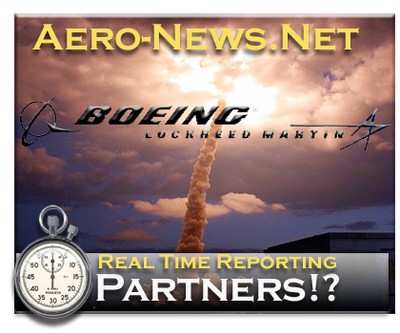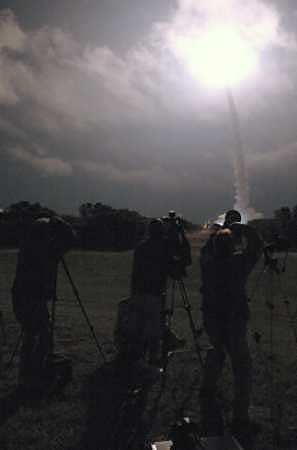Fri, Oct 21, 2005
Says Monopolistic Merger Limits Competition, Costs
Taxpayers
Citizens Against Government Waste (CAGW) Thursday urged the Air
Force against granting sole-source contracts for heavy satellite
launches to United Launch Alliance (ULA), a joint venture between
Boeing and Lockheed Martin. Regulators are expected to rule on the
merger shortly and the companies are now jointly negotiating for
the third round of launches under the $32 billion Evolved
Expendable Launch Vehicle (EELV) program, which will cover 23
missions lasting through 2011 and beyond. Despite the cost
overruns, schedule delays, and scandals that have plagued EELV,
there is no legal requirement for the Air Force to consider
additional bidders that may emerge before 2011.

"The structure slams the door on any possible competition," CAGW
President Tom Schatz said. "The ULA locks up all contracts,
ensuring high costs for taxpayers and stifling innovation."
The ULA will provide national security launch services for the
Department of Defense (DOD) and some NASA missions, but Boeing and
Lockheed Martin will continue competing for private launches. The
FTC and DOD have questioned the companies' claim that consolidation
will save $100 million to $150 million per year. The EELV program
was implemented in 1995 to give the federal government "assured
access" to space by keeping two domestic providers viable. The
first round of contracts was awarded to the same companies in 1998
with the expectation that a strong commercial launching market
emerge. However, the companies failed to adjust to market
conditions and the government has assumed an increasing share of
the risk and cost of the launching operations. If approved, the ULA
will benefit from $650 million in government subsidies for
infrastructure and about $100 million per launch.

"The Boeing tanker lease scandal showed that depending on a
small number of contractors ties the government's hands in cases of
corporate malfeasance. This consolidation leaves the government
with no alternatives if the companies waste tax dollars as they
have done in the past," Schatz continued.
A July 2005 report from the Government Accountability Office
referred to the DOD's space system acquisition efforts as "dismal."
EELV's unit cost has grown 81 percent. During the first round of
bidding seven years go, Boeing obtained proprietary information
from Lockheed Martin and the resulting investigation and suspension
cost taxpayers $230 million. The House version of the fiscal 2006
Defense Appropriations bill included language requiring future EELV
contracts to be negotiated on an annual basis because "multi-year
contracts are no longer in the interests of taxpayers."
"The Air Force is propping up failing ventures with lucrative
long-term contracts, forcing taxpayers to fund the EELV boondoggle
for years to come. To keep the US space launching industry
competitive, the Air Force should do whatever it can to open the
field to new competitors," Schatz concluded.
More News
“Setting eight speed records this quickly following its August entry into service is a powerful testament to the tremendous capabilities of this aircraft. We are already seei>[...]
On-Course Indication An indication on an instrument, which provides the pilot a visual means of determining that the aircraft is located on the centerline of a given navigational t>[...]
Aero Linx: WW1 Aeroplanes, Inc. WORLD WAR 1 AEROPLANES was founded by Leo Opdycke in 1961 and incorporated as a federally recognized 501 (c) (3) not-for-profit corporation in 1979,>[...]
Pilot Reported That He Purchased The Airplane Earlier That Day Analysis: The pilot reported that he purchased the airplane earlier that day and completed a condition inspection tha>[...]
Also: Abu Dhabi’s 1st Vertiport Network, Anduril-EDGE Partner, Vertical Permit/eVTOL Regs Sierra Space’s Dream Chaser spaceplane has cleared another round of pre-flight>[...]
 Aero-News: Quote of the Day (11.18.25)
Aero-News: Quote of the Day (11.18.25) ANN's Daily Aero-Term (11.18.25): On-Course Indication
ANN's Daily Aero-Term (11.18.25): On-Course Indication ANN's Daily Aero-Linx (11.18.25)
ANN's Daily Aero-Linx (11.18.25) NTSB Final Report: Shoemaker Ronald R Pazmany PL-2
NTSB Final Report: Shoemaker Ronald R Pazmany PL-2 Airborne-NextGen 11.18.25: Dream Chaser Preps, Joby eTurbine, UAE Flt Test
Airborne-NextGen 11.18.25: Dream Chaser Preps, Joby eTurbine, UAE Flt Test




